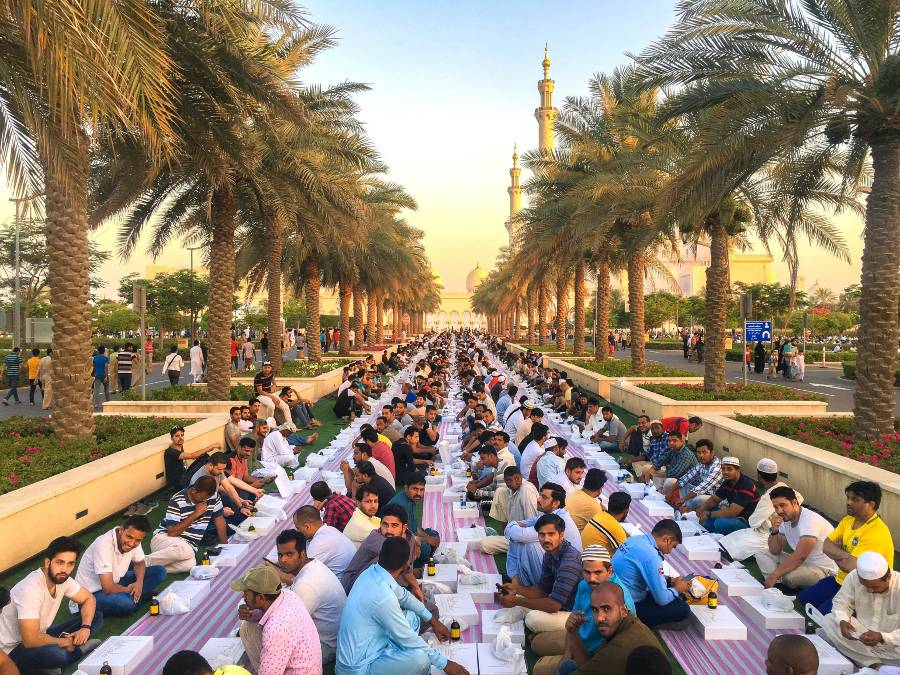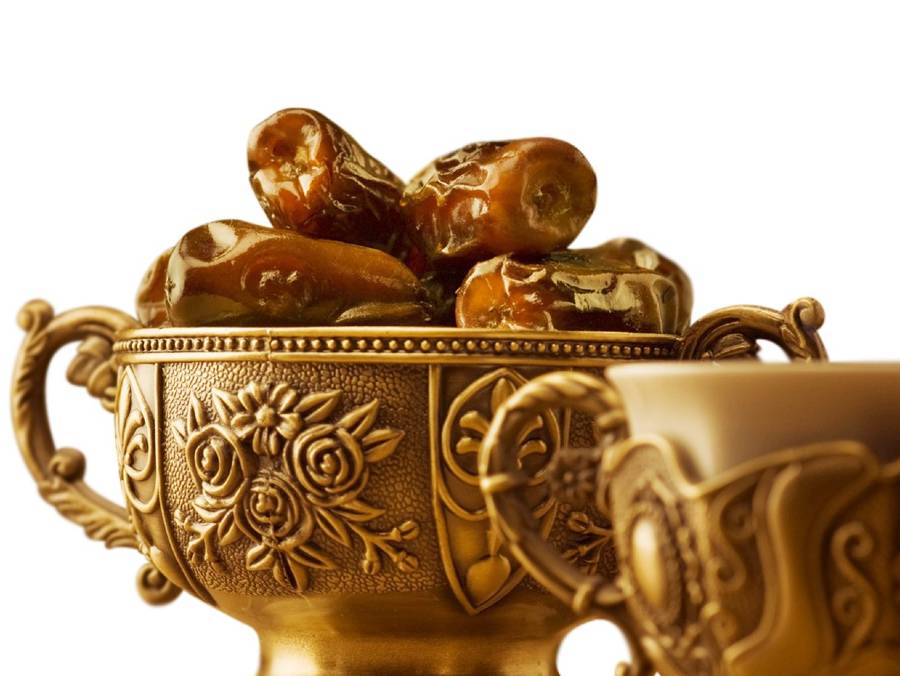-
-
-
Tổng tiền thanh toán:
-
Ramadan 2021 UAE
Ramadan 2021 UAE: Dates, Rules and All You Need to Know!
The holy month of Ramadan is a special occasion to visit Dubai and the UAE. For non-Muslims, however, this can be confusing: what are the rules to respect? Are the museums and attractions open? And what about hotels and restaurants?
In this post we will find out everything you need to know about Ramadan in UAE: how to behave, what to do in Dubai during Ramadan and everything that can be useful for you during your trip.
Ramadan 2021 UAE: Dates and Useful Information
Ramadan 2021 started on April 13, 2021 and will end on May 12, 2021. Ramadan Mubarak!
Ramadan is one of the months of the Islamic calendar (Hijri), which is based on the lunar cycles. For this reason, the date may vary by a couple of days. The beginning of Ramadan is confirmed with the direct observation of the crescent.
According to the Islamic calendar, Ramadan 2021 will be Ramadan 1442.
What is Ramadan?
Ramadan is the 9th month of the lunar calendar (Islamic Calendar, or Hijri), and it is a very important month for Muslims. It is the month in which the revelation of the Quran to the Prophet Muhammad is commemorated. Traditionally this is celebrated on the night of Laylat Al Qadr which is one of the last 10 nights of Ramadan.
What not to do during Ramadan
The observance of Ramadan is considered one of the five pillars of Islam. Muslims must refrain from eating and drinking from dawn until dusk. Furthermore, they must refrain from smoking, sexual activities and all sinful or disrespectful behavior.
Some categories of people, such as children up to puberty, those with an illness, and pregnant women, are not required to fast.
UAE Ramadan Customs and Traditions
The month of Ramadan is also dedicated to prayer, and in the last 10 days of the month many Muslims spend the whole day praying in mosques.
The tradition of Ramadan in Dubai, Abu Dhabi and the rest of the UAE begins in the middle of the month before it, when children put on their best traditional dress and visit neighbors’ homes, where they recite songs and poems in return of sweets.
On the first night of Ramadan, the family gathers at the home of the head of the family (usually the grandfather) for the first Iftar. According to the tradition of the UAE, Iftar consists of dates and laban (buttermilk), or as most used in the UAE, with dates and water.
That of the month of Ramadan is an extraordinary experience, which teaches self-awareness, tolerance and patience.
In this period, non-Muslims can discover the deepest and most authentic traditions of the people of the UAE, participating in the rhythms of the day and especially in the festivities that mark this important month.
Travelers are warned that they may receive invitations from local families to attend the traditional Iftar, the meal of breaking the fast. In this case, you may have the opportunity to live one of the most authentic and unforgettable experiences of your trip.

How should Non-Muslims behave during Ramadan in the UAE?
Tourists visiting Dubai, Abu Dhabi or other places in the UAE during Ramadan, need to be aware of some simple rules to follow. The same goes for expats and non-Muslim residents.
Non-Muslims are not expected to fast, but still must respect the prohibition of eating or drinking in public.
Eating, drinking, smoking, chewing and public displays of affection are prohibited during Ramadan.
Eating or drinking in public is a criminal offense and can be punished with 1 year in prison or a hefty fine (2000 AED).
However in Dubai the attitude towards non-Muslims is usually quite tolerant, and you can eat in many restaurants that stay open during the day. These restaurants usually darken the windows and allow people to eat inside.
It is recommended to dress appropriately and behave in a respectful manner. At other times of the year, shorts and t-shirts are just fine in Dubai, while during Ramadan it is recommended to cover shoulders and knees.
At resorts in Dubai and other cities in the UAE, you can wear your swimwear and be relaxed all year round. So, you can safely enjoy the sun and the sea!
Supermarkets are open, you can regularly buy food and drinks in shopping malls and hotels, and in your room or home you can do whatever you want.
Younger children are not expected to participate in fasting, while until puberty (typically up to the age of 12) participation in fasting is optional. So if you are traveling with children, you can feed them when they are hungry, no problem.
Can tourists drink alcohol during Ramadan in Dubai?
Yes, non-Muslim tourists are allowed to drink alcohol in Dubai. It is often only served after sunset (Iftar). Some restaurants may refuse to serve alcohol with Iftar. If they advertise “hops & grapes” or similar, then it means they serve alcohol.
Beware that in the Emirate of Sharjah alcohol is prohibited for everyone all year round, even for non-Muslims.

Visiting Dubai during Ramadan
Many wonder if it is worth visiting Dubai during Ramadan and, if so, what are the differences in opening hours and in the possibility of participating in tours and experiences.
Visiting Dubai during Ramadan is still a beautiful experience, you will notice how the city is unusually quiet and peaceful during the day, and how it comes to life cheerfully in the evening.
Remember to pack a good travel insurance, because accidents are much more frequent during this period, due to the effects fasting can have on people.
Offices may have reduced hours. In Dubai, work shifts during Ramadan are 2 hours shorter.
Restaurants and Hotels
Some restaurants respect fasting and only open in the evening, others are open all day. Reservations are recommended in the evening, as restaurants tend to be busy.
The hotels are regularly open, as are their restaurants, bars, swimming pools and spas.
Go Around
It is recommended to travel by public transport, with the Hop On Hop Off double-decker buses, or by renting a car, because licensed taxi drivers in the evening often prefer to break their fast. The timetables of the metro and public buses may also change, it is best to check the official website.
Shopping and Grocery Stores
Shopping malls and supermarkets are open regularly and usually close later in the evening. Some grocery stores stay open all night.
Parks and Attractions
Theme parks in Dubai and Abu Dhabi are regularly open, and are usually not very busy, which is why some tend to offer discounted tickets.
Iftar in Dubai and Abu Dhabi
One of the words you need to know about Ramadan is Iftar.
Iftar means “the breaking of the fast”, and takes place every evening at the maghrib, the sunset prayer time.
The exact time of Iftar varies from city to city, as it depends on the exact time when the sun sets. For example in Dubai, Iftar occurs a few minutes before Abu Dhabi, because it is further east.
In the UAE the Iftar is announced by the firing of a cannon. After the firing of the cannon, which can be heard even 10 kilometers away, you can hear the sound of azan, the call to prayer that spreads from the mosque speakers.
From this moment the Iftar begins, the whole family gathers, and usually begins with a snack of dates and water, as per tradition. This is usually followed by a larger meal.
Interesting things to do at Iftar in Dubai and Abu Dhabi
You can go to see the traditional cannon firing ceremony. In Dubai the cannon is fired in 5 different places: Burj Park, Al Mankhool, Al Baraha, Madinat Jumeirah and Dubai City Walk.
The most beautiful ceremony is undoubtedly the one held in Abu Dhabi, in front of the Sheikh Zayed Grand Mosque.
In addition, some of the restaurants in Dubai and Abu Dhabi host sumptuous feasts for Iftar, which are great to try to experience the local culture and food.
Suhoor Time in Dubai
Suhoor is the meal that is eaten before the fast starts again, so before starting a new day, as a kind of breakfast.
The time of the Suhoor is before that of dawn, therefore the Suhoor is consumed very early. Dubai hotels often serve Suhoor immediately after Iftar, during the night.
After Ramadan you will encounter the two main public holidays in the UAE, Eid al-Fitr and Eid al-Adha.
Eid al-Fitr
Eid al-Fitr is the celebration of the breaking of the fast, it takes place immediately after the end of Ramadan and lasts for three days. Locals cheerfully celebrate with sumptuous banquets, and it’s an opportunity to put on their best clothes and visit relatives and friends bearing gifts.
Public offices and schools are closed, families enjoy fun days, love to go to the desert or theme parks in Dubai and Abu Dhabi, get henna tattoos, and eat a lot!
All theme parks, shopping malls and tourist attractions are open (and it is highly recommended to book tickets in advance), traffic can be quite chaotic during this period.
Eid al-Fitr 2021 UAE
Eid al-Fitr 2021 in the UAE will begin at sunset on May 12, 2021.
Eid al-Adha
Eid al-Adha is another important UAE holiday, occurring approximately 70 days after Ramadan ends. It begins on the 10th day of Dhu Al Hijjah (the last month of the lunar Islamic calendar), which is the day after the Day of Arafah, the day of the annual pilgrimage to Mecca.
This holiday lasts 4 days and is considered a public holiday, so offices and schools are closed (from 4 to 7 days, depending on the government’s decision).
During this time, in addition to prayers in mosques and charity activities, local families love to share gifts and food, sacrifice goats or sheep to eat with their family, and give a third to friends and a third to people in need.
The traditional dishes that can be tasted during Eid belong to traditional local cuisine, such as lamb or goat slow-cooked and served with fried rice and pine nuts, Chicken Machboos (delicious chicken cooked with tomatoes, onions and herbs, served with spiced rice) and a wide choice of sweets, including the typical Luqaimat, donut-style dough balls filled with delicious and sweet local honey.
Eid al-Adha 2021 UAE
The date of Eid al-Adha varies constantly according to the Islamic lunar calendar, just like all other anniversaries.
Eid al-Adha 2021 in the UAE will begin at sunset on July 19, 2021.
What is the most appropriate greeting during Ramadan?
As you will easily hear around, the locals usually greet each other by saying “Ramadan Mubarak” or “Ramadan Kareem”, and they will certainly appreciate if you greet them like this.
#saffronofiran #saffrondubai #nuochoadubai #perfumdubai #saffronbahraman


